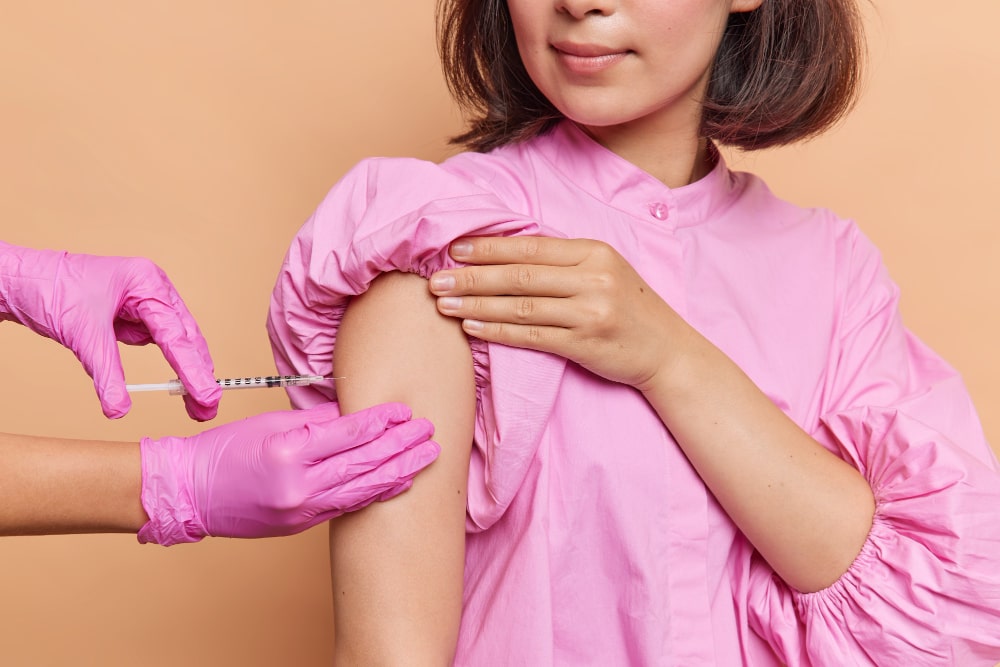Cervical cancer vaccination refers to the administration of vaccines that protect against human papillomavirus (HPV), a sexually transmitted infection that is the primary cause of cervical cancer. There are currently two main vaccines available for cervical cancer prevention: Gardasil and Cervavac.
Gardasil and cervavac which is an Indian vaccine are quadrivalent vaccine that protects against four types of HPV: 6, 11, 16, and 18. HPV types 16 and 18 are responsible for causing approximately 70% of cervical cancer cases, while types 6 and 11 cause genital warts. Both are approved for use in both males and females. Up to 14 years of age 2 doses are required with a gap of six months and 15 years and above 3 doses are required at 0, 2, and 6 months.
Both vaccines are highly effective in preventing HPV infection and reducing the risk of cervical cancer. They are most effective when administered before sexual activity begins, as they are designed to prevent new HPV infections rather than treat existing ones.
Cervical cancer vaccination is recommended for girls and boys between the ages of 9 and 14, although it can be given up to age 26 for females and age 21 for males. It is typically administered as part of routine childhood vaccinations, but can also be given to older individuals who have not been previously vaccinated. Fogsi recommends vaccination of women up to the age of 45 years.
In addition to protecting against cervical cancer, HPV vaccines also provide some protection against other types of cancer, including anal, vaginal, vulvar, and oropharyngeal cancers. They are generally safe and well-tolerated, with the most common side effects being pain, redness, or swelling at the injection site.
It is important to note that while cervical cancer vaccination is highly effective in preventing HPV infection, it does not provide complete protection against all types of HPV. Therefore, regular cervical cancer screening, such as Pap tests, is still recommended for vaccinated individuals to detect any potential abnormalities or early signs of cervical cancer
Cervical cancer vaccination is a crucial preventive measure, safeguarding against human papillomavirus (HPV), a leading cause of cervical cancer. Gynecologist in Indore recommends timely vaccinations for women to reduce the risk of cervical cancer, emphasizing the importance of routine screenings and consultations to ensure overall reproductive health and well-being.

